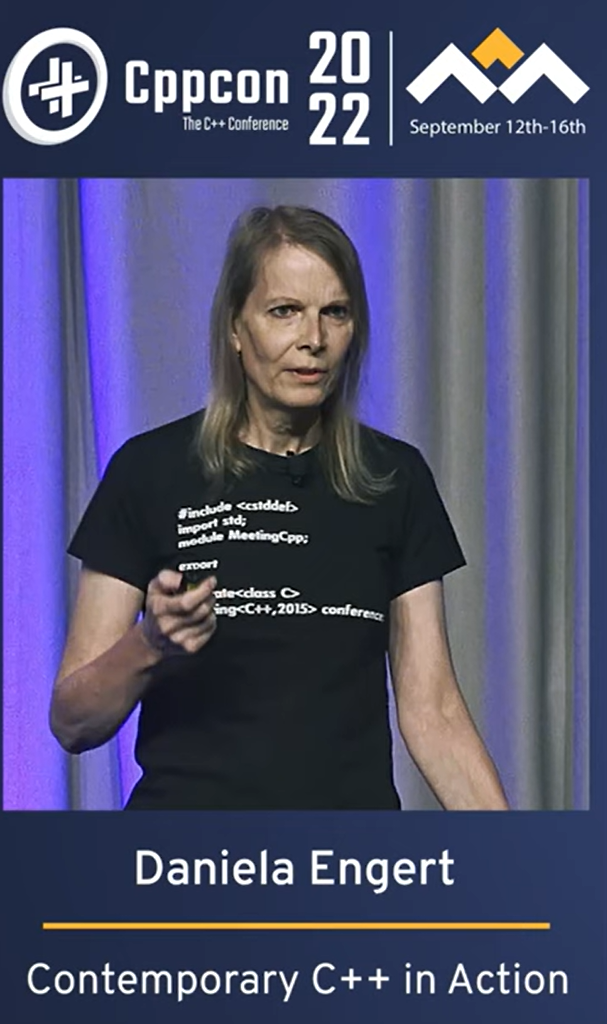Next week: Meeting C++ online job fair
Next week hosts the Meeting C++ online job fair on Tuesday (3-6pm CEST/Berlin) and Wednesday (8-11pm CEST/Berlin).
by Jens Weller
About the event:
During the event you'll be able to join a virtual lounge and go from table to table to meet various employers for C++. Employers can still sign up until Monday. You already can share your resume/CV via the sharing form at Meeting C++.

 Another CppCon 2022 keynote video is posted:
Another CppCon 2022 keynote video is posted: Do you know about std::ssize()?
Do you know about std::ssize()? Speaking of std::ssize...
Speaking of std::ssize... Improving safety and security in GCC:
Improving safety and security in GCC: